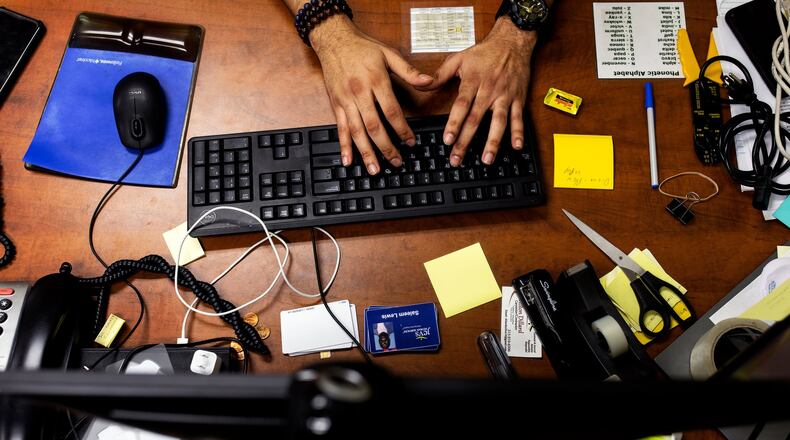Some Georgia businesses and nonprofits say they will have a tougher time hiring the employees they need to stay competitive after President Donald Trump signed an order restricting work visas for many foreigners.
Trump’s order, which went into effect Wednesday, halts the issuance of some foreign worker visas, including H-1B visas for highly skilled technical workers. He said he wanted to give preference to American workers with the coronavirus pandemic pushing unemployment to critical levels.
But the Technology Association of Georgia and many top U.S. companies condemned the order, which also prevents some intracompany overseas transfers, saying that is counterproductive to restarting the economy.
The United States grants up to 85,000 H-1B visas yearly. Georgia, grabbed more than its share — 9% in 2019 — among the 50 states.
In its response to Trump, the consortium of 300-plus U.S. companies said the H-1B program allows them to bring in entrepreneurial workers and researchers who create jobs and make businesses more competitive.
“The stability of America’s workforce – including (H-1B workers) — cannot be more important than at this very moment when the Trump administration and the entire nation look to our companies to reinforce the backbone of the national economy,” a statement from the organization said.
Petitions for 2,227 new or extended H-1B visas for Georgia jobs were granted in the first quarter of 2020. The new visas are good for three years.
In 2019, the U.S. Citizenship and Immigration Services granted petitions for a total of 7,673 new or extended H-1B visas for more than 1,800 companies operating in Georgia, according to the agency website. The companies ranged from some Fortune 500 companies, such as Home Depot (167 new or extended petitions) and Delta Air Lines (26), to universities, hospitals, warehousers and manufacturers. The majority went to smaller companies that are part of Georgia’s growing tech sector.
Because of visa extensions and workers changing jobs, it is difficult to know the total number of H-1B workers in the state.
The law says highly skilled workers must have theoretical or technical expertise that companies need. Companies must prove they have difficulty in hiring U.S. workers for the positions and promise to pay wages in line or higher than what Americans make doing the same job.
“When looking at the tech sector, it’s always a struggle for companies to fill jobs. The U.S. just doesn’t produce enough (science and technology) grads to fill the job vacancies,” said Alexandra Holland, an immigration attorney with Ogletree, Deakins, Nash, Smoak & Stewart and a volunteer with the Technology Association of Georgia’s International Business Society.
While computer related fields expect to have more than 1 million U.S. employees this year, universities produced fewer than 56,000 graduates in the field, according to one study.
Holland said metro Atlanta is among the top 15 in the U.S for technical job growth.
“Georgia and metro Atlanta have become a tech hub within the Southeast,” she said.
Some unions and others complain that the foreign workers are used to undercut American workers and keep wages low.
A look by Harvard Business Review of current studies found that there are worker shortages in areas such as software development and data scientists, but not in other technical work fields.
The new visa restrictions also apply to seasonal workers, such as landscapers and resort workers, and some students and cultural workers. But they do not apply to the agricultural workers who help bring in Georgia’s crops, from cotton to vegetables and peaches.
About the Author
Keep Reading
The Latest
Featured



